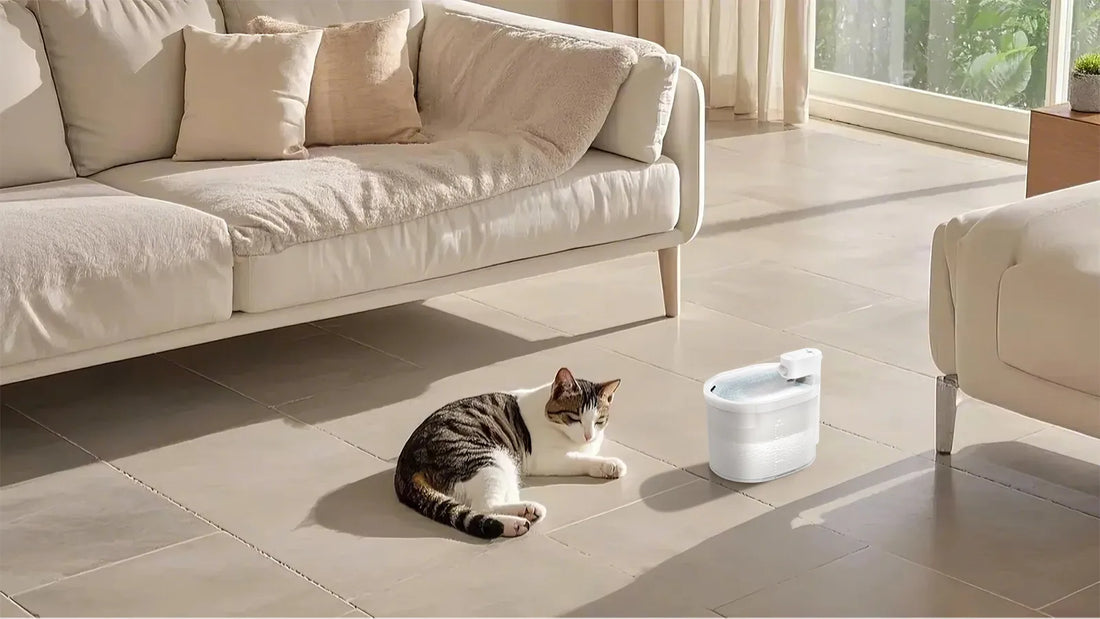If you're a cat owner, you know how frustrating it can be when your feline friend suddenly stops using the litter box. This behavior can be perplexing and concerning, but understanding the underlying reasons can help you address the issue effectively. In this article, we'll explore the various factors that might be causing your cat to avoid the litter box and provide actionable tips to get them back on track.
Health Issues
One of the first things to consider when your cat stops using the litter box is their health. Cats are masters at hiding discomfort, so it's essential to rule out any medical conditions that could be causing this behavior. Common health issues that might lead to litter box avoidance include urinary tract infections, kidney problems, and gastrointestinal disorders. If your cat is experiencing pain or discomfort while using the litter box, they may associate it with negative feelings and avoid it altogether.
Stress and Anxiety
Cats are sensitive creatures, and changes in their environment can lead to stress and anxiety, which might result in litter box avoidance. Factors such as moving to a new home, introducing a new pet, or even rearranging furniture can disrupt your cat's sense of security. Additionally, loud noises, unfamiliar visitors, or conflicts with other pets can also contribute to stress. Identifying and mitigating these stressors can help your cat feel more comfortable and encourage them to use the litter box again.
Litter Box Preferences
Believe it or not, cats can be quite particular about their litter box preferences. The type of litter, the size and shape of the box, and even the location can all influence whether your cat chooses to use it. Some cats prefer unscented litter, while others might be sensitive to certain textures. Similarly, a litter box that's too small or difficult to access can deter your cat from using it. Experimenting with different types of litter and boxes can help you find the perfect combination that suits your cat's preferences.
Cleanliness Matters
Cats are naturally clean animals, and a dirty litter box can be a major turn-off. If the litter box isn't cleaned regularly, your cat may refuse to use it. It's important to scoop the litter box daily and change the litter completely at least once a week. Additionally, washing the litter box with mild soap and water can help eliminate any lingering odors that might be unpleasant for your cat. Maintaining a clean and fresh litter box environment is crucial for encouraging consistent use.
Multiple Cats in the Household
If you have more than one cat, competition or territorial issues could be the reason why one of them is avoiding the litter box. Cats are territorial animals, and they may feel threatened or stressed if they have to share a litter box with another cat. Providing multiple litter boxes in different locations can help alleviate this issue. A good rule of thumb is to have one litter box per cat, plus an extra one, to ensure that each cat has their own space.
Behavioral Problems
Sometimes, litter box avoidance can be a sign of behavioral problems. Cats may develop negative associations with the litter box due to past experiences, such as being startled while using it. Additionally, some cats may engage in marking behavior as a way to assert dominance or communicate with other cats. Addressing these behavioral issues may require patience and consistency, and in some cases, consulting with a veterinarian or animal behaviorist can be beneficial.
Environmental Changes
Changes in your cat's environment can also lead to litter box avoidance. For example, if you've recently moved the litter box to a new location, your cat might be confused or uncomfortable with the change. Similarly, introducing new furniture or household items near the litter box can create distractions or obstacles that make it less appealing. Ensuring that the litter box is placed in a quiet, accessible, and consistent location can help your cat feel more at ease.
Age-Related Issues
As cats age, they may experience physical changes that affect their ability to use the litter box. Arthritis, for instance, can make it difficult for older cats to climb into a high-sided litter box or squat comfortably. Additionally, cognitive decline in senior cats can lead to confusion or forgetfulness about where the litter box is located. Providing a litter box with lower sides and placing it in an easily accessible area can help accommodate your aging cat's needs.
Medical Conditions
Certain medical conditions, such as diabetes or hyperthyroidism, can increase your cat's frequency of urination, leading to accidents outside the litter box. If your cat is drinking more water than usual or showing other signs of illness, it's important to consult with a veterinarian to rule out any underlying health issues. Managing these conditions through proper treatment and care can help resolve litter box problems.
Training and Reinforcement
If your cat has never been properly trained to use the litter box, or if they've developed bad habits, it may be necessary to retrain them. Positive reinforcement, such as offering treats or praise when your cat uses the litter box correctly, can be effective in encouraging good behavior. Additionally, avoiding punishment for accidents can help prevent your cat from associating the litter box with negative experiences. Consistency and patience are key when it comes to training or retraining your cat.
Understanding why your cat is not using the litter box is the first step toward resolving this frustrating issue. By considering factors such as health, stress, preferences, and environmental changes, you can identify the root cause and take appropriate action. Remember, every cat is unique, and what works for one may not work for another. With patience, persistence, and a bit of detective work, you can help your feline friend get back to using the litter box consistently. Don't let litter box problems strain your relationship with your cat—take the necessary steps to address the issue and enjoy a happier, healthier bond with your furry companion.













